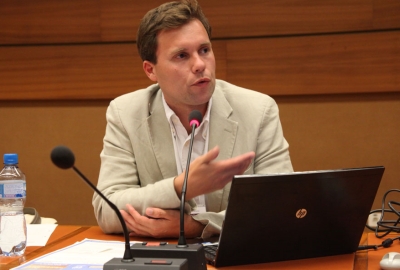
How to make finance work for developing countries?
Last week UNCTAD met in Genève with NGO’s in preparation for its 13th conference next year. Disappointment was expressed by both UNCTAD and the NGO’s about the slow pace and shallowness of the current financial reform process.
Especially the neglect of the specific interests of developing countries was criticized. Many of the issues identified by the UN’s financial reform commission, the Stiglitz commission(opens in new window) like global trade imbalances and monetary reforms, have hardly been touched upon. Whereas the financial crisis originated on Wall Street, it is in the villages where there aren’t even paved streets that the consequences are now most acutely felt. Developing countries face lower exports, lower remittances and austerity measures in both the developing countries and the developed, resulting in less aid spending.
Many issues were raised that so far have hardly been discussed by international policymakers, like the global imbalances that have been at the root of the financial crisis. Brasilian former Minister of Finance Bresser-Pereira called for limits to trade deficits and surpluses, a ‘Global Trade Stabilisation pact’. Jose Ocampo, former Minister of Finance of Colombia asked Germany to raise wages like China has done, in order to combat the persistent imbalances.
These and other often neglected reforms, like reining in food speculation, responsible lending, debt crisis resolution, capital controls and development banks, have been discussed and will be further discussed in the run up to UNCTAD 13 in April 2012 and Rio +20 in June 2012. NGO’s are invited to actively participate in this. Something that is much needed to broaden the current shallow and too narrow agenda on financial reform.
Information on the UNCTAD Symposium(opens in new window)
Related news
-
Why share buybacks are bad for the planet and peoplePosted in category:Opinion
 Myriam Vander StichelePublished on:
Myriam Vander StichelePublished on: Myriam Vander Stichele
Myriam Vander Stichele -
 The Netherlands: European champion share buybackPosted in category:Long read
The Netherlands: European champion share buybackPosted in category:Long read Rodrigo FernandezPublished on:
Rodrigo FernandezPublished on: -
 The trillion-dollar threat of climate change profiteersPosted in category:Long read
The trillion-dollar threat of climate change profiteersPosted in category:Long read Myriam Vander StichelePublished on:
Myriam Vander StichelePublished on:

